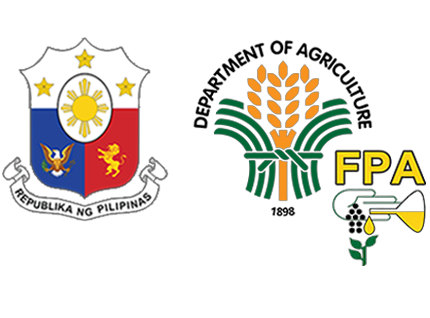
Can FPA control or regulate the prices of fertilizers and pesticides?
No, FPA cannot regulate and control the prices of fertilizers and pesticides. In 1986, due to the massive trade liberalization efforts of the government, the quantitative restrictions on fertilizer were removed. As a result, the FPA discontinued the issuance of import permits for fertilizer and abandoned its price-setting function.
The Agriculture and Fisheries Modernization Act (AFMA) or Republic Act No. 7716 further allowed the duty-free importation of fertilizer enterprises engaged in agriculture. The law also grants tariff exemptions to agricultural enterprises such as farmers, cooperatives, and organizations for imported agricultural inputs under Executive Order Nos. 133 and 376.
Similarly, Section 109 (B) of the National Internal Revenue Code of 1997 exempts fertilizer subsidiaries from payment of the 12% Value-Added Tax (VAT). This is why the industry players must apply for a VAT Exempt Certificate from FPA. To encourage market competition to drive market prices, the FPA continuously explores the streamlining of its regulatory services for the registration and licensing of more products and handlers (businesses).
Does FPA regulate fertilizers and pesticides intended for industrial use?
No. The Supreme Court in 2007 ruled that pesticides for urban and household use shall not be within the FPA’s jurisdiction highlighting the Authority’s focus only on agriculture. Since then, the regulation was transferred to the Food and Drugs Administration (FDA).
Does the FPA regulate organic fertilizers and pesticides?
No. The FPA focuses on the regulation of inorganic agricultural inputs. Its jurisdiction over organic fertilizers and pesticides including handlers has been transferred to the Bureau of Agriculture and Fisheries Standards (BAFS) after the passage of Republic Act 10068 (An Act Providing for the Development and Promotion of Organic Agriculture in the Philippines and Other Purposes).
Does the FPA regulate registered pesticides and other agricultural chemicals for animal facilities?
Yes. FPA released a Memorandum Circular No. 11 Series of 2021 indicating the transfer of product registration from the Bureau of Animal Industry (BAI) to FPA since BAI has no jurisdiction to register these products. This is pursuant to Presidential Decree 1144, Series of 1977, Section 9, “no pesticides, fertilizer, or other agricultural chemical shall be exported, imported, manufactured, formulated, stored, distributed, sold, or offered for sale, transported, delivered for transportation or used unless it has been duly registered with the Fertilizer and Pesticide Authority.
As classified in the Pesticide Regulatory Policies and Implementing Guidelines, other agricultural chemicals include defoliant, desiccant, wood preservative, surfactant/adjuvant, emulsifier, wetting agent, penetrant, synergist, manufacturing/intermediate products, disinfectants, etc.
For those pesticides and other agricultural chemicals for animal facilities who are interested in renewing or registering their products they may refer to this link for the list of requirements and procedures: MC_6_2024.pdf (da.gov.ph) or email the Pesticide Regulations Division (PRD) at fpa.prd.eup@gmail.com.
How does FPA address the issue of illegal online selling of fertilizer and pesticide products?
The FPA enforces Joint Administrative Order No. 22-01 (“JAO”) entitled “Guidelines for Online Businesses Reiterating the Laws and Regulations Applicable to Online Business and Consumers” issued on 4 March 2022 by the Department of Trade and Industry (DTI), Department of Agriculture (DA), Department of Health (DOH), Department of Environment and Natural Resources (DENR), Intellectual Property Office (IPO) and National Privacy Commission (NPC).
Online sellers of fertilizers and pesticides shall comply with said JAO to increase consumer confidence in business-to-consumer and business-to-business e-commerce transactions.
The JAO ensures that e-commerce platforms, electronic retailers (e-retailers), and online merchants are guided on the rules, regulations, and responsibilities in the conduct of online business. It reiterates existing policies, procedures, and guidelines that apply to online businesses, and provides an integrated remedies process for online consumers.
The FPA also warns the public that using unregistered products can pose significant health and environmental risks and result in financial losses. Consumers are advised to avoid and report sellers offering unregistered products, smuggled, underweight, expired, or non-compliant with standards.
What are the programs of FPA to support the local production of fertilizer and pesticides in the country?
- Fertilizer and Pesticide Regulatory Program
As a regulatory agency, the FPA issues registrations and permits for fertilizers, pesticides, and other agricultural products before they are released into the market to ensure quality and safety. Handlers must also obtain licenses before engaging in the manufacture, sale, distribution, processing, and marketing of these inputs. The FPA's regional field units conduct regular monitoring and inspections of handlers and products to ensure compliance and detect unauthorized handlers and unregistered, fake, and off-specification products. These activities help ensure that safe and high-quality agricultural inputs are available for farmers and end-users.
- Fortified Organic Fertilizer Development Program (FOFDP)
The FPA is implementing the FOFDP which primarily involves the transfer of funds to LGU beneficiaries for the establishment of the Composting Facilities for Biodegradable Wastes (CFBW). This is in collaboration with the Bureau of Soils and Water Management (BSWM) which has the technical expertise to implement the CFBW project. The FOFDP contributes to the modernization strategy of the Department of Agriculture to provide the LGUs with alternative sources of fertilizer.
What actions were undertaken by FPA to ban hazardous pesticides in the Philippines?
Banned pesticides are those which cannot be brought into and used in the country under any circumstances. Included in this classification are pesticides that have been found unacceptable for use under normal situations and whose registrations have been canceled by FPA or voluntarily withdrawn by the concerned company.
Pesticides banned in other countries may be allowed to be brought into the country under the Principle of Prior Informed Consent (PIC). Restricted pesticides on the other hand may be classified into three categories: (1) restrictions because of hazard; (2) restrictions for purposes of gathering more information; and (3) restrictions due to possible crop phytotoxicity in an ordinary farmer’s cultural practice. The FPA must regularly monitor and enforce confiscation. More importantly, the agency informs and educates the public to avoid/discontinue the use of these inputs and to report incidences of their continuous use and distribution to FPA.
The list of banned and restricted pesticides can be accessed at:
https://fpa.da.gov.ph/NW/index.php/information-resources/data/banned-and-restricted-pesticides
What is the status of fertilizer importation? On average, how much inorganic fertilizer (mt or kg) does the PH import?
From 2021 to 2023, the annual average volume of inorganic fertilizer importation is 2.36 million MT.
For 2024, the total volume of imported fertilizer is 1.03 million metric tons as of June 2024, which is 43.68% of the total importation volume of the previous year. Major fertilizer grades comprise 90.86% of the total imported volume.
| Year | Volume (MT) | Value (USD) |
| 2021 | 2,371,208.20 | 857,778,073.79 |
| 2022 | 2,174,551.40 | 1,350,231,370.51 |
| 2023 | 2,523,840.87 | 1,086,812,271.47 |
| 2024* | 1,029,359.79 | 319,789,999.91 |
Source: FPA Fertilizer Regulations Division
What is the strategy of FPA for eliminating the use of harmful inputs in food production systems?
Aside from the FPA’s regulatory functions, public information is one of the agency's strategic thrusts. It involves disseminating information on the safe application methods, dosage, and timing of fertilizers and pesticides to minimize environmental impact and maximize efficacy – protecting the public from the risks inherent in the use of pesticides.
How can the public report illegal fertilizer and pesticide products and their sellers/distributors?
The public may report illegal sellers or distributors and unregistered products to the following channels:
- Email: focu.general@gmail.com
- Facebook: https://www.facebook.com/FPAofficialpage
- Website: https://fpa.da.gov.ph/contact-us/
- Telephone: (02) 8927-3647
They may also visit the nearest FPA Regional Field Unit from their location. The directory of the FPA offices can be accessed at: https://fpa.da.gov.ph/about-us/organization/directory/

